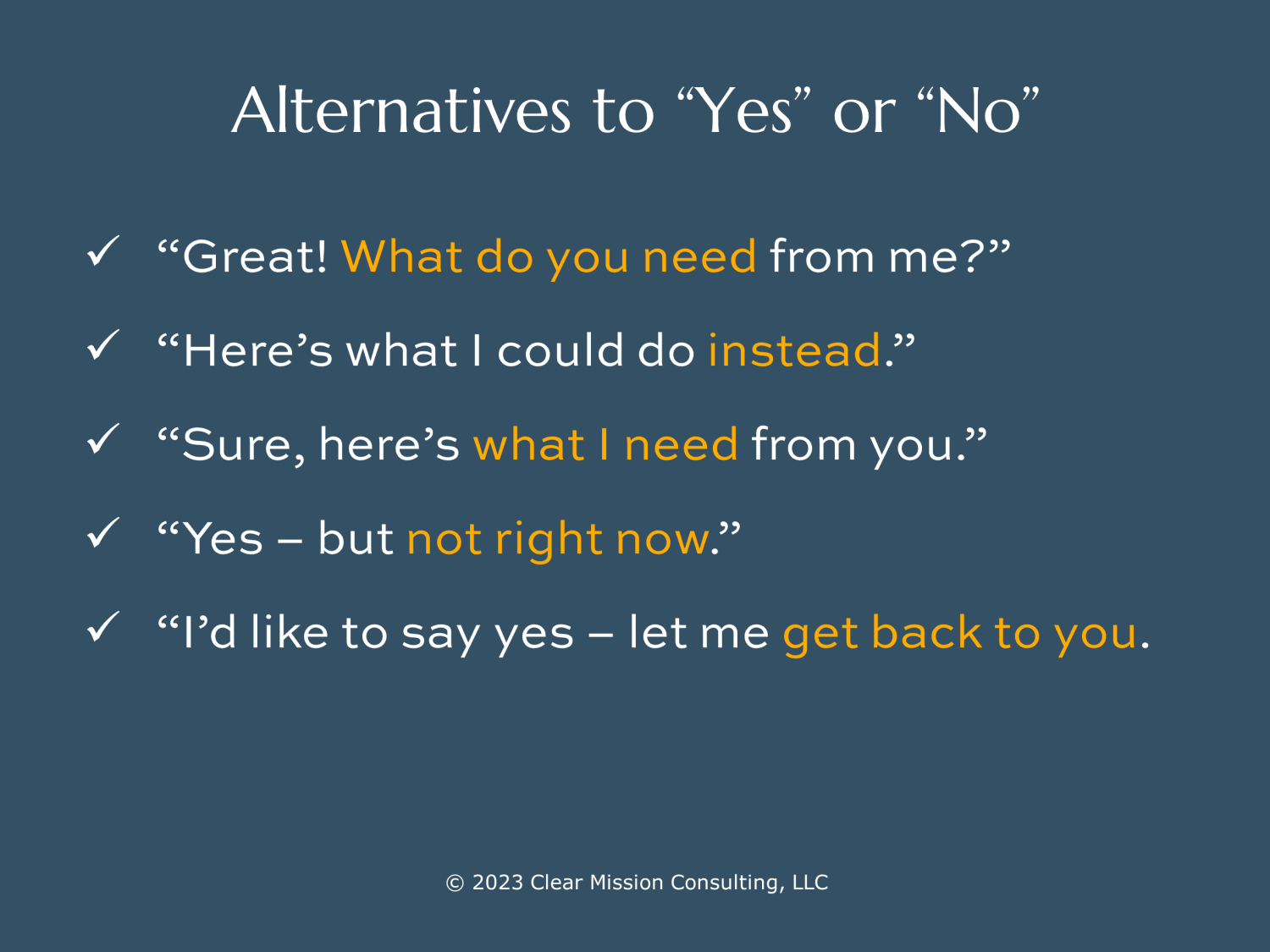Help Out AND Maintain Boundaries
August 31, 2023 | By David M. Wagner
Have you ever accidentally agreed to host a 40-person party at your home while it undergoes major renovations?
This happened to “Helen” (an alias). The mother of Helen’s engaged friend called up to discuss a bridal shower. When it became apparent that she wanted Helen to host the event, Helen felt cornered.
Despite having no intention of hosting the shower, invitations for the party at Helen’s house went out later that day.
The Yes/No Trap
Helen fell into a mental trap that ensnares many of us: the yes/no dichotomy.
Faced with a request, we sometimes think our only options are to say “yes, I’ll do that for you” (despite perhaps not having the time, resources, or desire) or “no, I won’t do that” (which can feel rude or like we’re letting someone down).
Many of my colleagues and clients struggle to say “no” because they take pride in their work and derive satisfaction from helping others. Instead, they overcommit themselves by saying “yes” to too many requests for their time and effort.
But what if you could agree to help someone – and demonstrate that you value your relationship with them – while still safeguarding your precious time and energy?
Alternatives to Yes/No
You can. Here’s a cheat-sheet of my favorite alternatives to “yes” or “no.”
“Yes, you should do that! What do you need from me?” Use this line to set explicit boundaries when someone disguises a request as an idea (“someone should ____…”) or tries to push a task from their plate (where it belongs) onto yours.
“Here’s what I could do instead.” Manage expectations by offering something else: I can’t run that project, but I could advise the project leader. I can’t attend that event – could I volunteer for the next one? I can’t host the party, but would you let me arrange the catering?
“Yes, and here’s what I need from you.” If a different task needs to come off your plate or you need more resources to honor a request, say so!
“Yes, I can do that later.” Use when the ask is appropriate, but more urgent matters demand your attention. Offer an alternate timeline that you can comfortably manage.
“I’d like to say yes – let me get back to you.” When you’re not sure what you can commit to, take a moment to determine what you’re able and willing to offer.
Context Matters
Especially when it comes to implied urgency, the context behind requests – and responses – matters.
Understanding why someone is making this request right now, or why they think it demands your immediate attention, can help you triage priorities. Conversely, sharing your reasons for responding with a different offer or timeline can help the requestor recalibrate their urgency.
You have options besides “yes” or “no!” I coach my clients on techniques like this to reclaim control of their precious time without feeling guilty. If you’re ready to start setting boundaries, set a free consultation today to discuss my coaching solutions.


